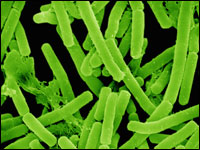 Herbalists recommend more than a dozen herbal remedies for acne and scarring, according to a recent article.
Herbalists recommend more than a dozen herbal remedies for acne and scarring, according to a recent article.
Unfortunately, only 1 of these herbals is supported by the results of a study in patients.
First, the details.
- The study was of 5% topical tea tree oil gel.
- 60 patients with mild to moderate acne vulgaris were randomly assigned to 45 days of treatment.
- 5% topically applied tea tree oil gel
- Placebo
- Response to treatment was evaluated by counting the acne lesions and the acne severity index.
- Neither the patients nor researchers knew the treatment given — double blind.
And, the results.
- Tea tree oil gel was significantly superior to placebo in reducing the total acne lesion count — 3.55 times more effective.
- There was significantly greater improvement with tea tree oil gel vs. placebo in acne severity — 5.75 times.
- Side effects to both treatments were relatively similar and tolerable.
Here’s a list of commonly recommended herbals that lack support based on the findings of PubMed literature searches of patients with acne.
- Black currant seed oil
- 500 mg capsules 3 times daily for 3 months or until acne is diminished.
- Evening primrose oil
- 500 mg capsules 3 times daily for 3 months or until acne is diminished.
- Teas from a combination of echinacea, tea tree oil, goldenseal, nettles, or calendula.
- Teas from lavender or chamomile
- To reduce acne-causing stress.
- Chinese herbs
- Cnidium seed
- Honeysuckle flower
- Teas from cumin, coriander, and fennel
- Steeped for 10 minutes in hot water and consumed 3 times a day after meals.
The bottom line?
It’s surprising how detailed the treatment recommendations are considering the lack of evidence that these herbals make a positive contribution to the management of acne.
4/19/09 21:17 JR